
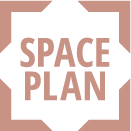

Google Coworking can be found also in Central Europe and is a trendsetter for corporate collaboration zones or coworking hubs.
7. 8. 2018
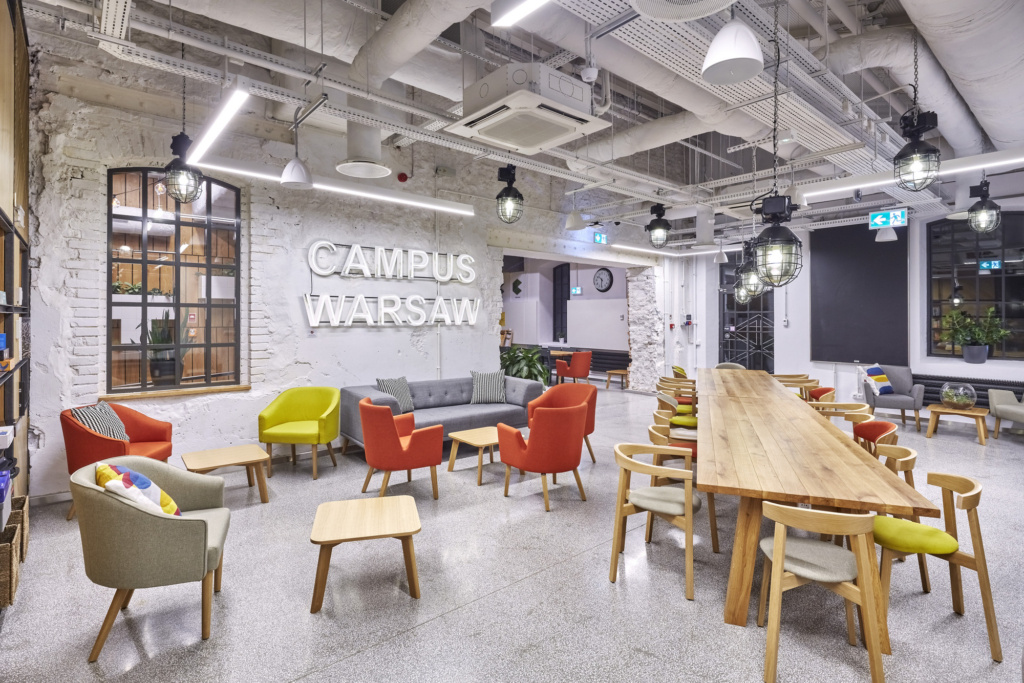
Google project is considered as a top reference for many companies because of its popularity and position thanks to its (yet) unwavering position on the search, advertising, communications, and online services on a market
Such a reference has been added to a portfolio of Polish Massive Design, which has been devoted to spaceplan and interior design for more than 20 years.
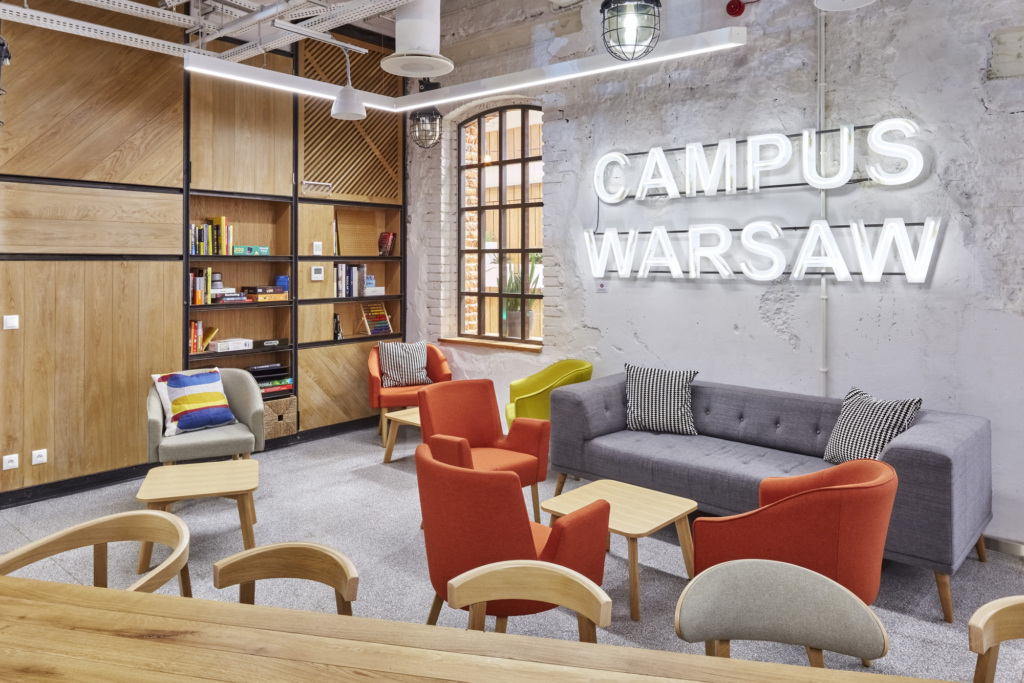
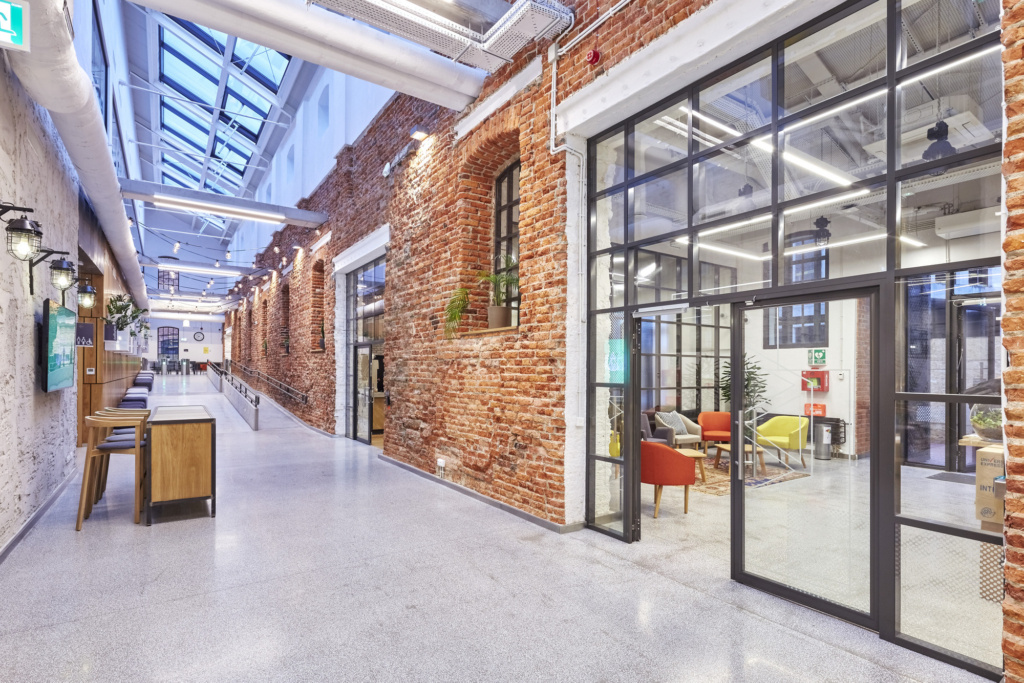
Additional attractiveness lies is in a fact that it wasn´t only design of "common“ Google's spaces as such, but in this case, it was Google´s coworking Campus Warsaw. Campus Warsaw is not a new Google project that would be pursuing to respond to a growing trend of coworking areas around the world, the number of which is close to 10,000.
Campus Warsaw is the seventh world coworking within the Google Spaces project. From 2011, we will find similar premises for startups and bigger-scale companies in London, Berlin, Tel Aviv, Soul, Madrid and Sao Paulo.
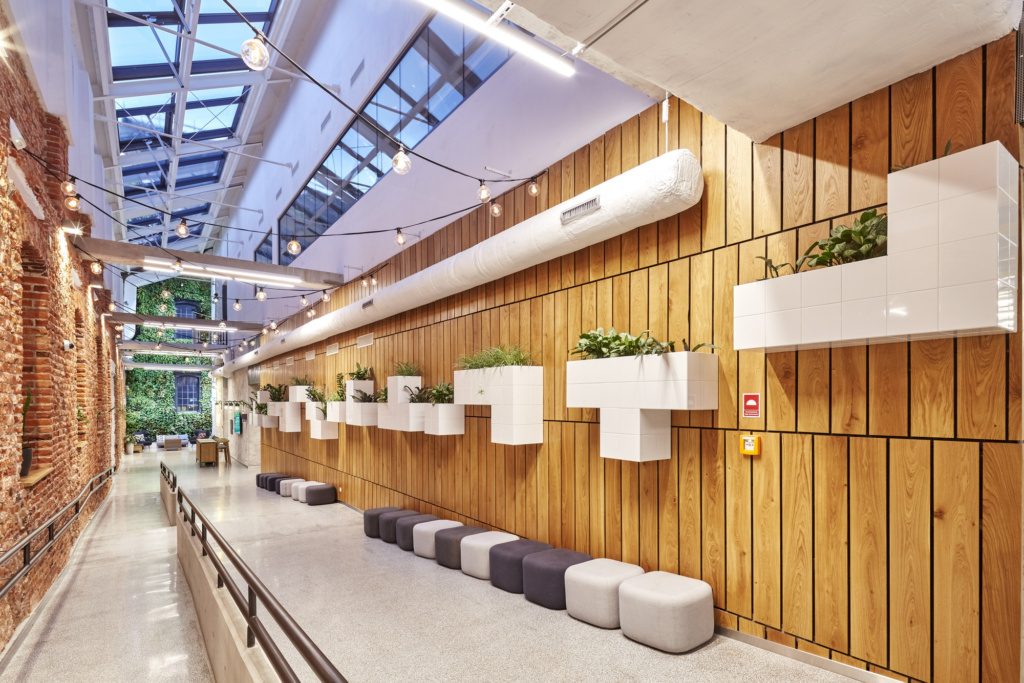
Nearly two centuries ago vodka was being produced in a today´s Campus Warsaw, but now are created great innovations and solutions by great talents of Poland and Central Europe. Massive Design was in charge of a complete project from A to Z – a case study, analysis, spaceplan through interior design, architecture and project supervision.
A goal was clear: to create space for networking, informal and formal areas, focus places, meeting and conference rooms.
Architects achieved this by creating exceptional office functionality in the design phase; selecting the best materials for the interiors from both a user and environment-friendly perspective, with the project achieving LEED (and also BREEAM) certifications; and by incorporating into the design of Campus Warsaw special interior elements, including objects salvaged from the historic “Koneser” Vodka Factory as well as other cultural symbols and motifs invoking the local heritage, inspiring and supporting the community of entrepreneurs from the CEE in their launch of the next great startups.
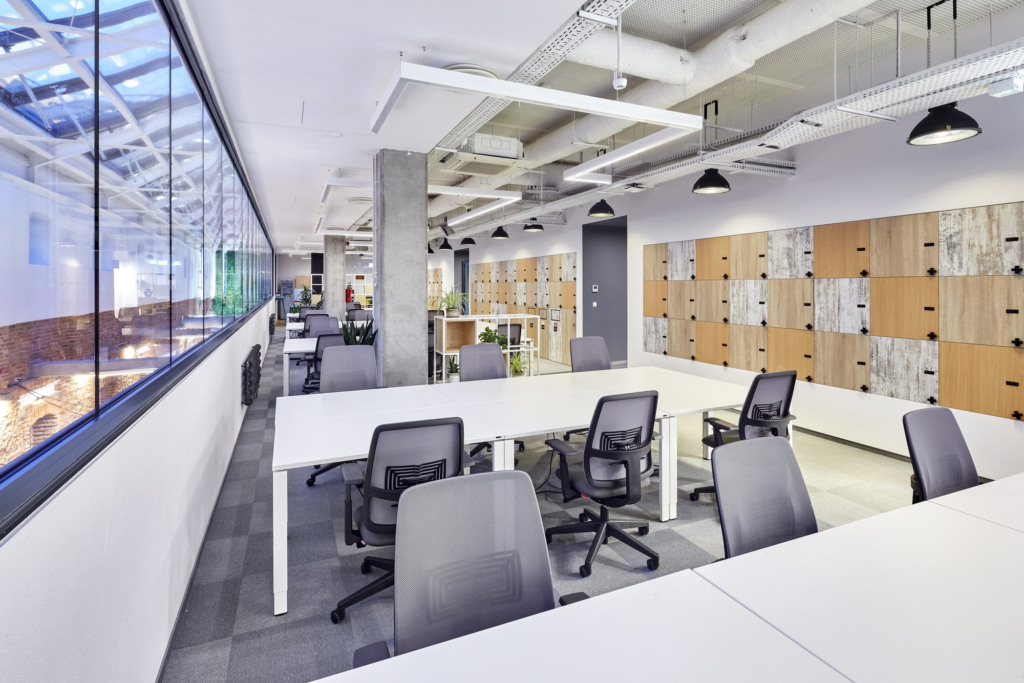
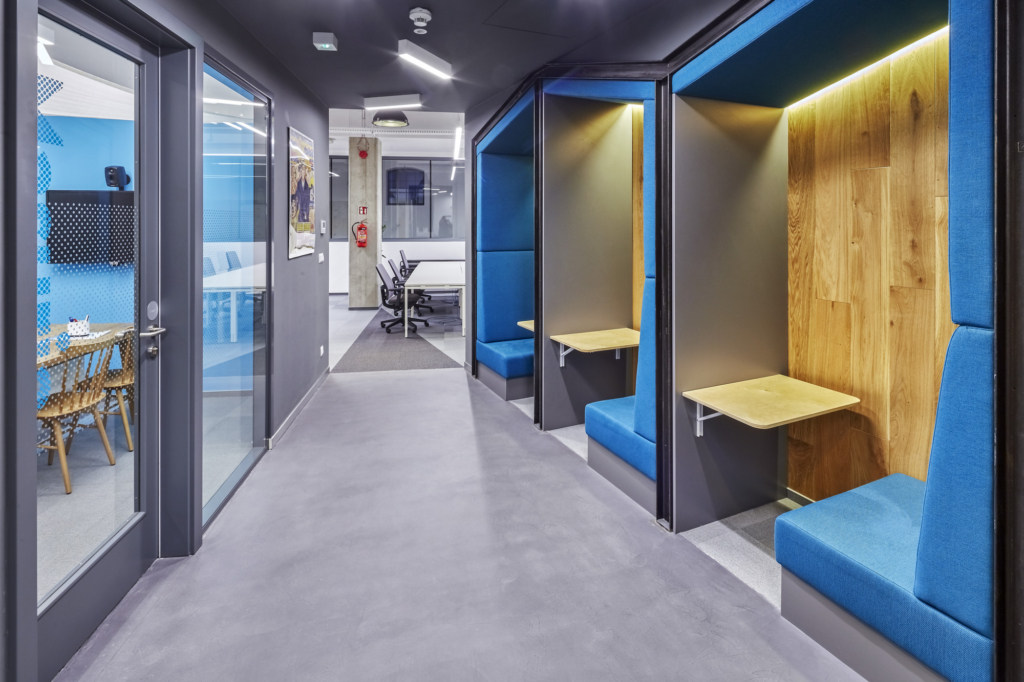
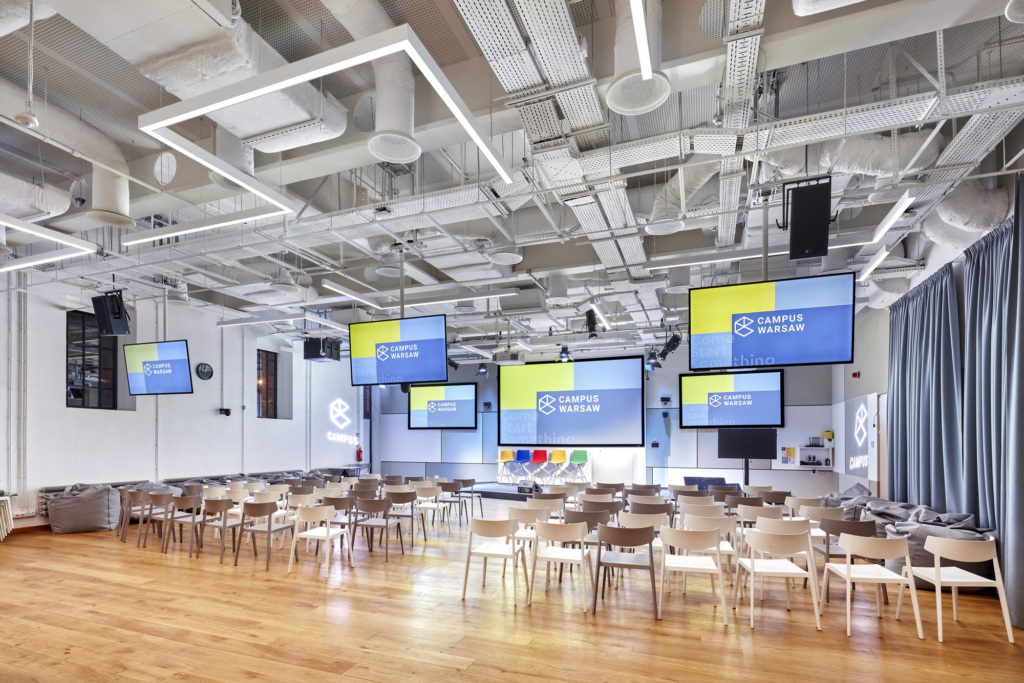
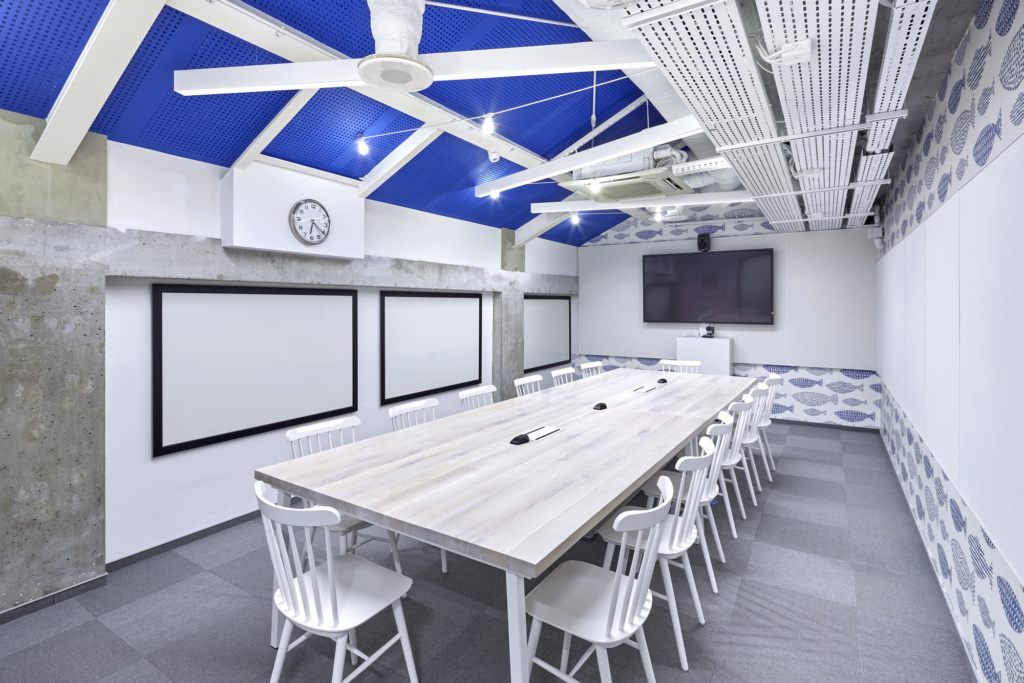
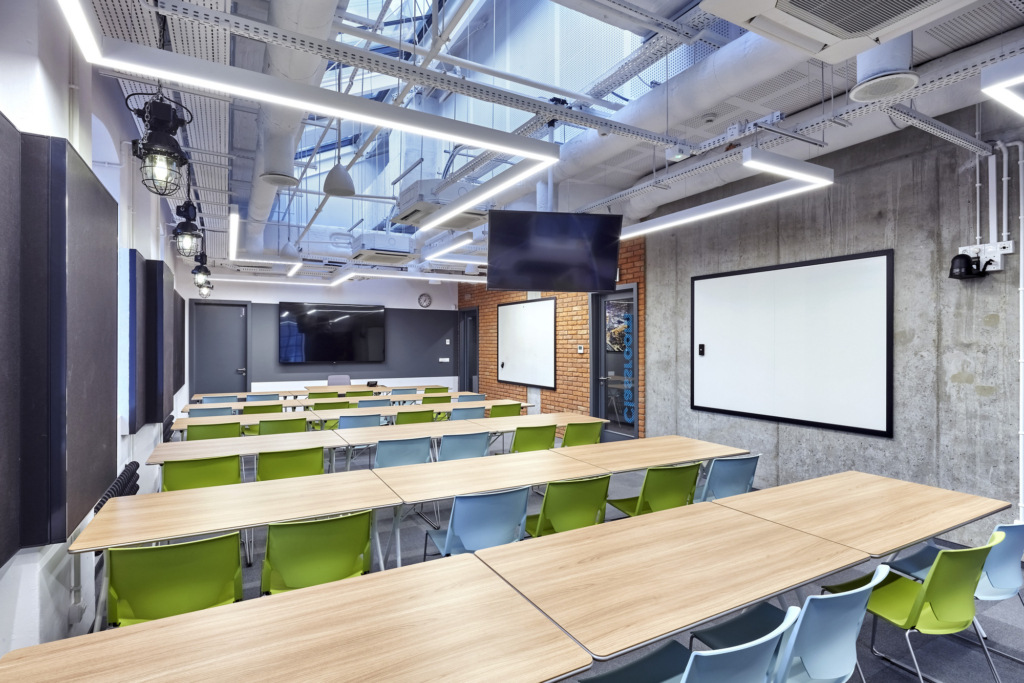
Massive Design divided into different zones the nearly 2,500 sq. m of office space used as a co-working area for Campus members, creating flexible office space with different levels of accessibility.
On the top two floors of the 4-story building, architects designed large open spaces, meeting rooms and phone booths to be used for quiet work, small group meetings and for private conversations. In addition, there is a classroom for larger groups, micro-kitchen, showers, etc. On the top floor, there are also several closed co-working areas.
On the ground floor, in addition to administrative offices, architects created more informal collaborative-type spaces, including a state-of-the-art auditorium and a spacious cafeteria equipped with long collaboration tables and high top tables custom-designed by Massive Design, bar stools as well as comfortable lounge chairs and pouffes (all Polish made furniture). Bistro-style padded bench seating and diner booths, which are meant to encourage more collaborative work, are also designed by Massive Design.
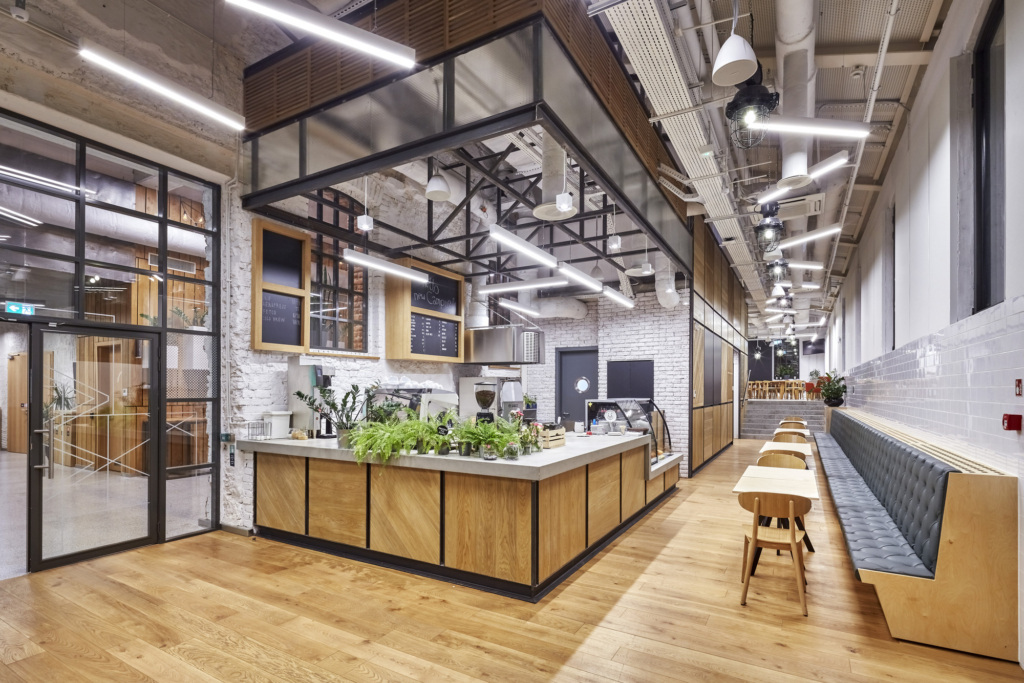
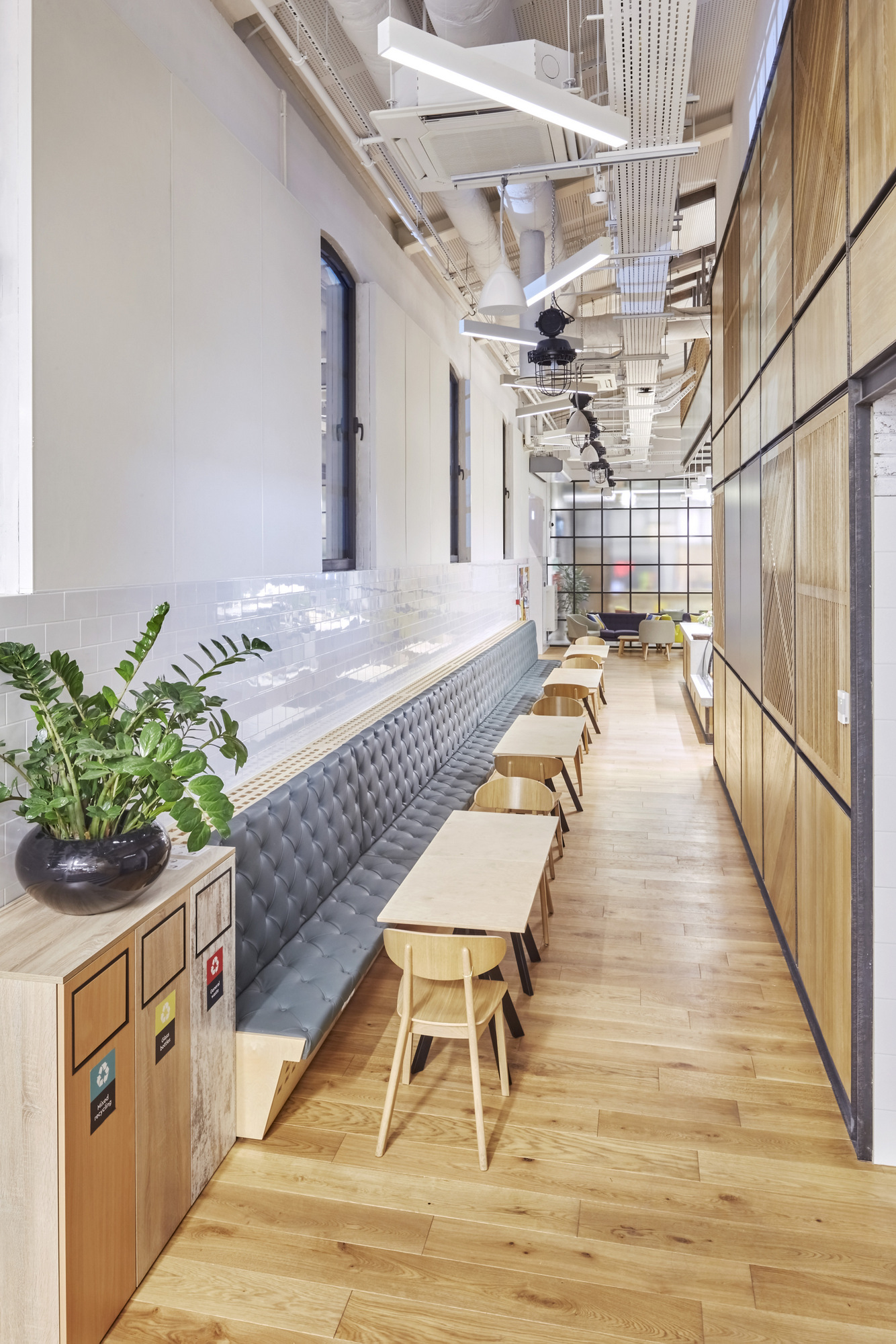
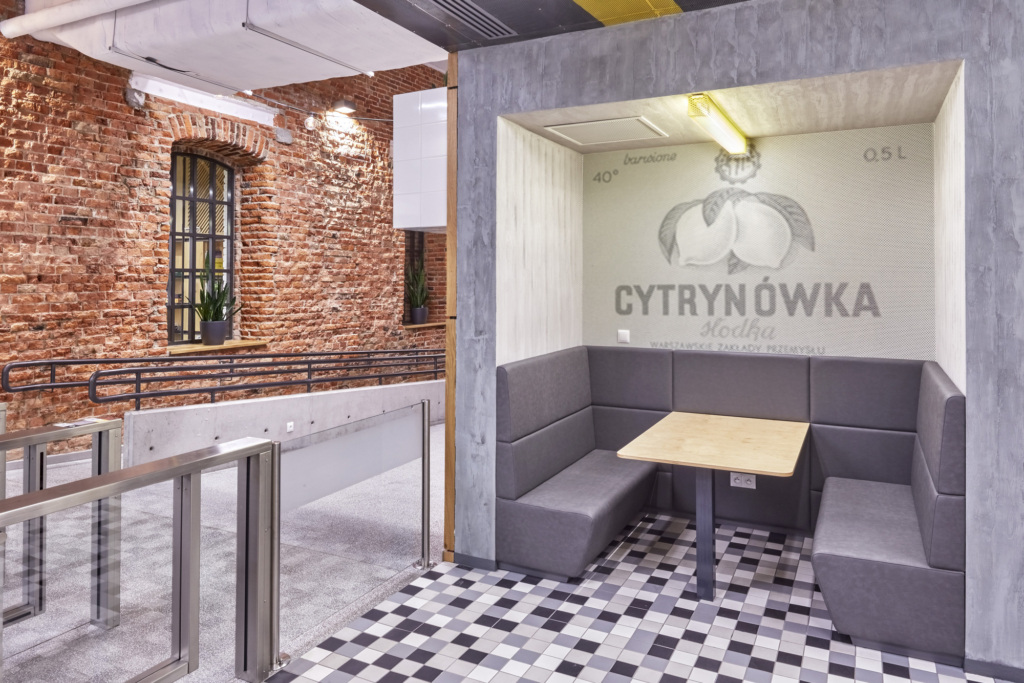
The diner booths are decorated with the images of prewar “Koneser” Factory and graphics of historic Polish vodka brands. The ceiling adjacent to the diner booths is made from recycled stainless steel perforated for sound absorption, complementing the other natural materials and finishes used in the interior design, such as wooden elements and an original 100-year old exposed brick wall.
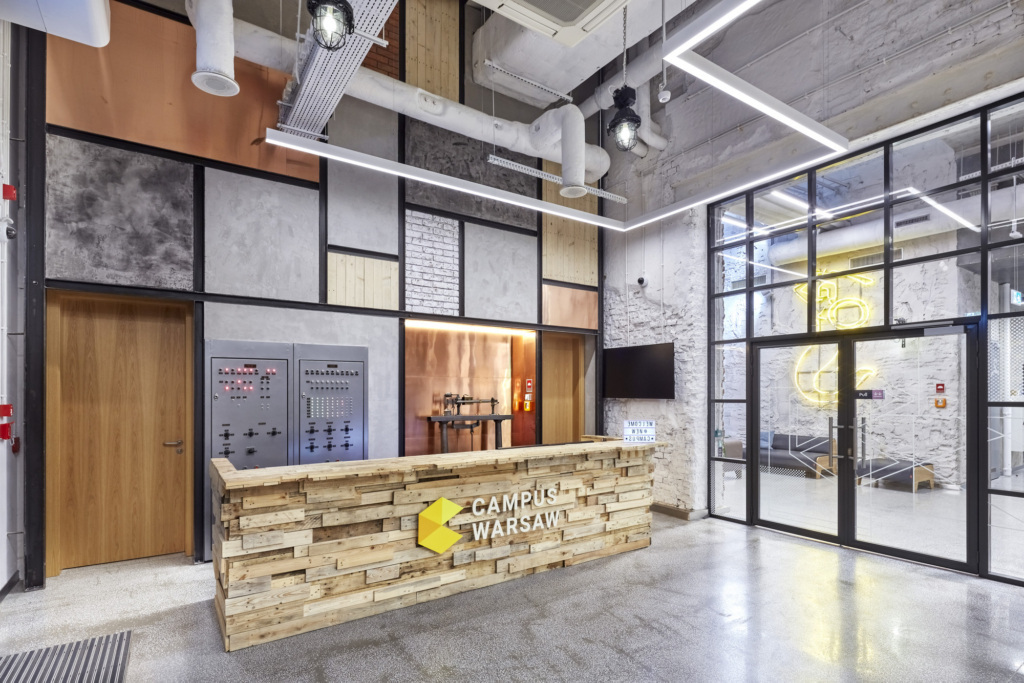
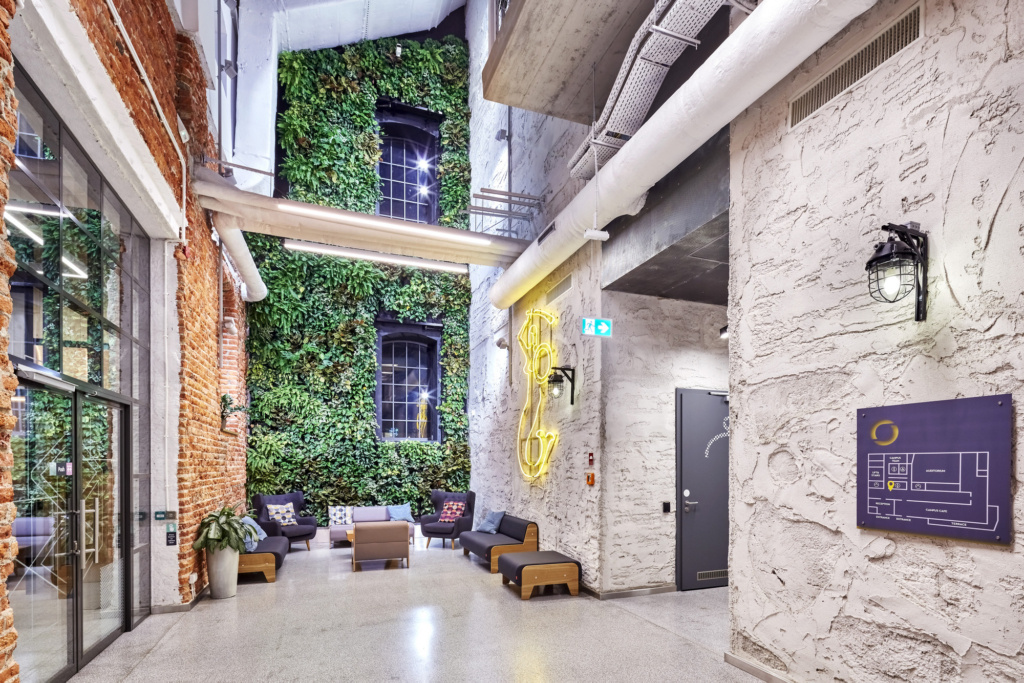
The brick wall, which calls to mind the rich history of the former vodka factory, today functions as a support wall for the three-story-high atrium with a glazed roof that provides the space with direct daylight access. Massive Design also designed the windows in the atrium facing the cafeteria, which references the historic windows located on the building’s exterior façade.
The main reception desk, located at the opposite end of the building, is composed of recycled wooden planks and a decorative reception wall with renovated switchboard with LED-illuminated control lights, a relic from the former vodka factory. Near the reception area, there are other design elements: a 10 meter-high natural vertical garden; terrazzo flooring reminiscent of the one used in the 1950s and 60s; and a large mermaid, the symbol of the city of Warsaw, lit up on the wall of the atrium in bright neon lights.

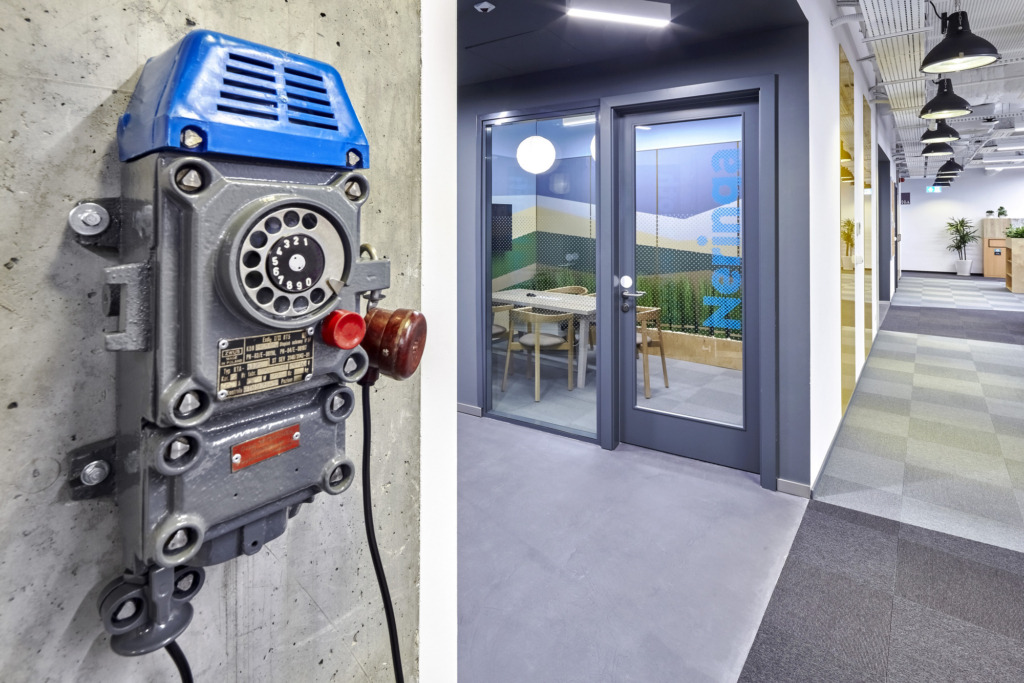
Photography: courtesy of Massive design